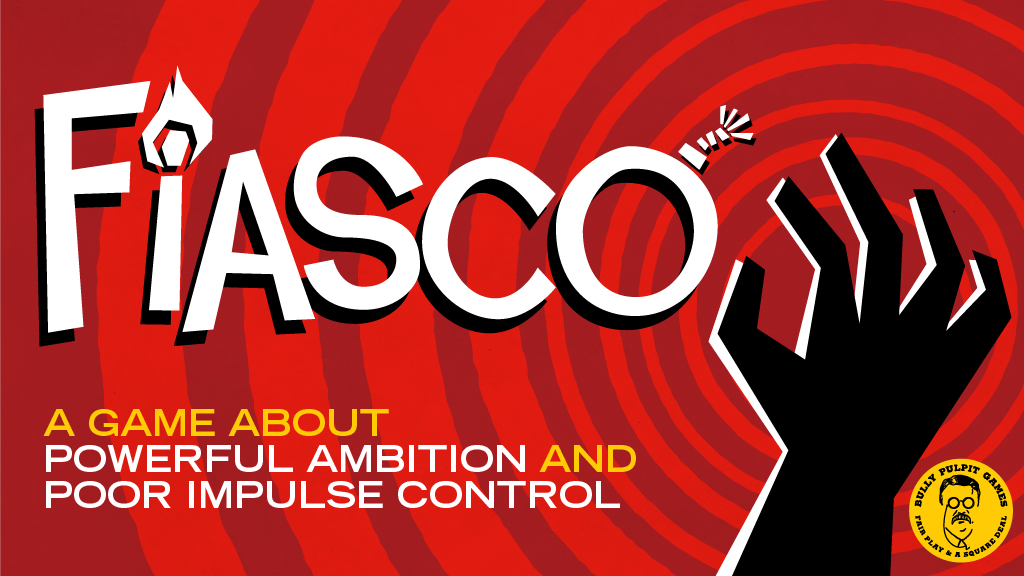A location, a basic relationship, a detail. In the tabletop RPG Fiasco, players work together to build the most entertaining story out of a few variables set by the game. Fiasco’s premise is built off of a film set: players utilize film production lingo like “cut” and “action” to signal beginnings and endings of turns of play, and the stories tend to play out like a classic Coen Brothers film (dysfunctional, potentially gritty, a healthy sprinkle of humor or absurdity). As a huge Coen Brothers fan, I was instantly attracted to the tone and narratives of Fiasco, and played two sessions with a couple friends. I should note, we were not able to finish the game in either session, mostly because of the trouble we ran into with setting up the game in the first place.
While the general premise of the game was easy to understand, we had a lot of trouble understanding how the game was set up and what exactly the win condition was. The manual is long, which isn’t surprising, but the major terms the game relied on in its introductory play instructions–playsets, the Aftermath, etc.–were unclear for beginners. The complicated set up of the game was also confusing, and took a while to get through. To set up the game, players had to choose a “playset.” These playsets, each with a different genre theme and general location, had several different categories with basic building blocks for a plot such as relationship, objects, and personal objective/desires. Then each category was split up into smaller categories (for example, the relationship category had “work,” “love,” or “acquaintance”), and then each of THESE categories had six smaller options (a more specific term for the previous category, so “ex” for the “love” category of the relationship category). Already as you can see, there are a lot of moving elements and specifications to the set up of the game. To make matters worse, players cannot choose whatever category or item they want– they must roll a certain number of dice (a LOT of them, since it’s 4 per player) and then the dice outcomes allow you to choose certain narrative aspects and bar you from other certain specific aspects. This setup phase takes a lot of time, and at some point becomes tedious. Fiasco does provide some interesting option of choice though in that players can only choose a limited number of narrative aspects for their role. Not every player gets a relationship, an object, or a location– to get a descriptor for one of these or more specific information for any category, player’s must “use a turn.” If this explanation is unclear, it might be because I am still confused about this game. The instructions and rhythm of play never clarified for my friends and I, and we ended up having to watch a YouTube tutorial for every part of the game we got to.
Despite a tedious, rocky start, the roleplay of the game was pretty fun. Fiasco, from what we could tell, is very flexible with what kinds of stories players can create, as long as they were working off of the narrative aspects decided during the set-up phase. The basic process of turns was confusing. There are two different paths for coming up with a narrative; for example, you yourself can either direct a scene, or you can ask the other players to come up with a scenario that you must navigate. It’s unclear why someone would choose one path over the other. It was also unclear exactly what the goal of the game was. While there were distinct stages in structure like the set-up, the main story, the aftermath and so on, we weren’t sure exactly what kind of story we were trying to achieve. The manual described the goal as “the most entertaining story,” but that objective is vague and subjective in terms. The flexibility and space for creativity in Fiasco still made the game very fun (in one session, I was a 60-year old white racist man named Wendell who had a rocky, on-and-off relationship with Joe Biden, who was played by someone else in the game). However, the big picture of the game that we’re supposed to be working towards was unclear, which led for rather directionless play.
